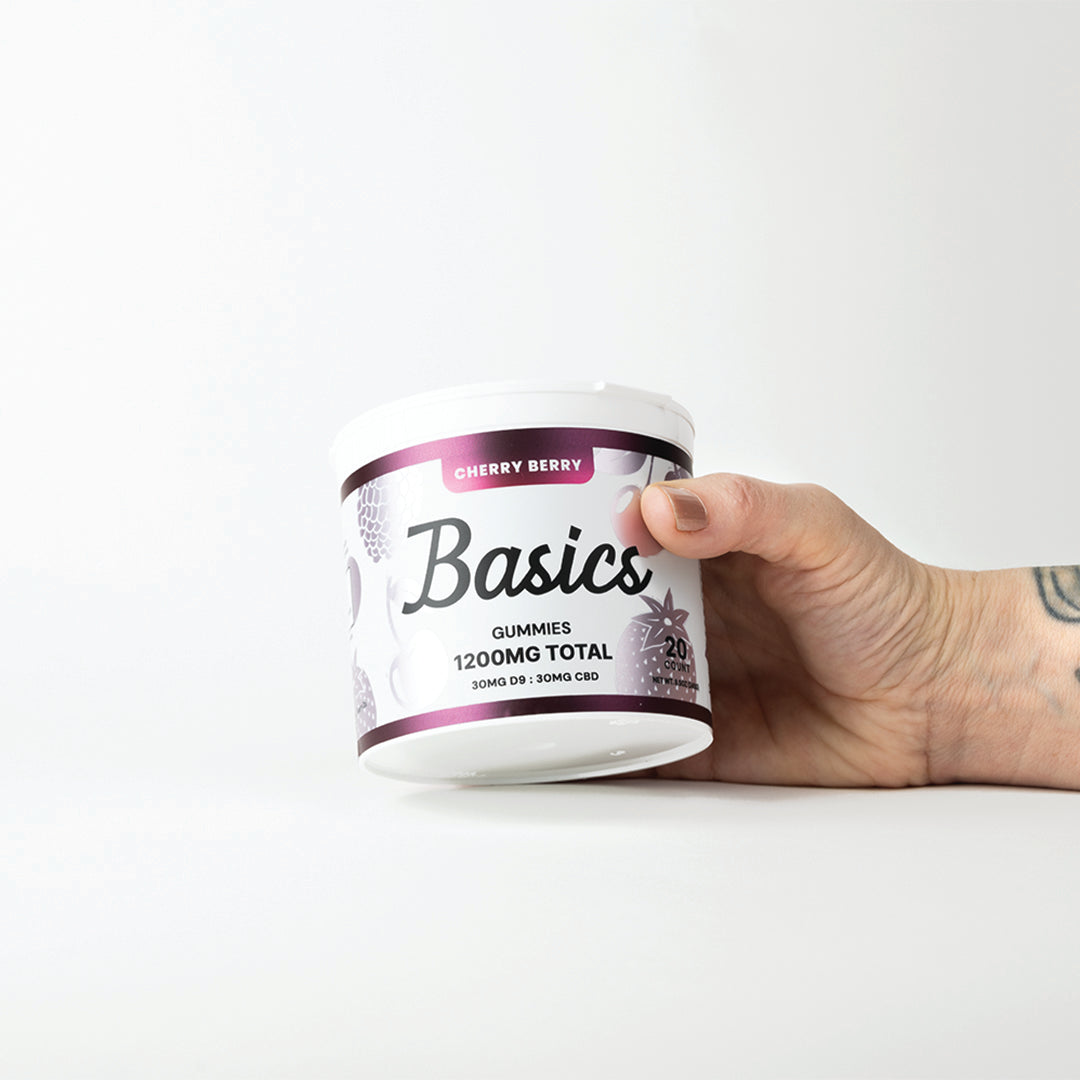7 Secret Ways to Get More Sleep
Quality sleep is key for our health, yet many find it hard to get. In this piece, you'll learn seven great tips for better sleep. This includes making your sleep space perfect and sticking to a steady sleep time. We’ll explore managing light and picking up relaxation methods. Also, we'll talk about how your diet and certain supplements can help. A quick note will be made about Drifters sleep gummies from Canvast Supply too.
Key Takeaways
- Creating a sleep-friendly bedroom environment with the right temperature, lighting, and bedding can significantly improve sleep quality.
- Establishing a consistent sleep schedule, even on weekends, helps regulate the body's internal clock for better sleep.
- Exposure to bright light during the day and limiting blue light exposure in the evening can enhance the body's natural sleep-wake cycle.
- Regular exercise, but not too close to bedtime, can promote deeper, more restorative sleep.
- Monitoring caffeine and alcohol intake, as well as practicing relaxation techniques before bed, can help you fall asleep faster and stay asleep throughout the night.

Optimize Your Sleep Environment
Creating the right bedroom is key for good sleep. Start with a good mattress and pillow for comfort and spinal support. Use bedding that's comfy and keeps you cool at night.
Create a Sleep-Friendly Bedroom
To make your room darker, try blackout curtains or a sleep mask. Soft noise from a fan or a white noise machine can help. Set your room's temperature at 65-68 degrees Fahrenheit for the best sleep. The ideal bedroom temperature for sleeping is recommended to be 65 degrees Fahrenheit (18.3 degrees Celsius).
Here are more tips for a sleep-friendly room:
- Pick bedding that's both comfy and temperature-regulating.
- A new mattress can improve sleep quality and reduce back pain.
- Wash your sheets every two weeks to keep dust mites away.
- Try calming scents like lavender oil to help you sleep better.
By making your sleep environment and bedroom setup just right, you ensure a good night's sleep. This helps your body follow its natural sleep cycle, leaving you refreshed in the morning.
Establish a Consistent Sleep Schedule
Keeping a steady sleep schedule is crucial for handling your body's natural clock. Try to sleep and wake at the same time daily, even on weekends. This helps keep your sleep-wake cycle in good shape, making sleep and waking up refreshed easier. If you're not asleep after 20 minutes, do something relaxing until you feel drowsy again.
Studies show adults typically need 7-9 hours each night to be at their best. If you need eight hours but are only catching six, you rack up a sleep debt. Adding 1-2 hours of sleep on free days can help balance this out.
A steady sleep routine boosts alertness, health, and safety. It also helps heart health and eases handling daily stress. Making sleep a priority aids in keeping a regular sleep pattern.
"For optimal mental and physical health, adults need at least seven hours of sleep."
Light plays a big role in syncing our internal clock with the outside world. Travel or shift work can disrupt this sync, making sleep tough. Keeping a regular sleep schedule is key for feeling good.
Sticking to a consistent sleep schedule is vital for rest. By valuing your sleep and setting a routine, your sleep-wake cycle can improve. This leads to enjoying the many benefits of quality sleep.
Manage Light Exposure
Handling light wisely is key to keeping your body’s rhythm in check. It helps make sure you sleep well. Stick to a good light routine to better your sleep and mood.
Increase Bright Light Exposure During the Day
Get your fill of natural light in the daytime. It helps your body know when it’s time to sleep. Being outside more lights you up and keeps you alert all day.
Good daytime light, especially in the morning and before bed, is crucial. It affects when you wake and sleep. So, make the most of daytime light to brighten your days and nights.
Limit Blue Light Exposure in the Evening
But, watch out for blue light from screens at night. It messes with when you feel like sleeping. Many people are on their devices right before bed, making it tough to doze off.
To keep a good sleep pattern, lower the lights and cut screens an hour before sleep. You can also wear special glasses or use night modes on your devices. This cuts down on the sleep-harming effects of blue light.
| Light Exposure Recommendations | Daytime | Evening |
|---|---|---|
| Bright Light | Seek out natural daylight or bright artificial light | Limit exposure to blue light from electronic devices |
| Timing | Within the first hour after waking and a few hours before bedtime | Avoid screens and dim lights at least 1 hour before bedtime |
| Benefits | Improves alertness, energy, and sleep quality | Supports natural melatonin production and sleep-wake cycle |
Managing light carefully is vital for healthy sleep. Appropriate lighting practices can make a big difference in how well you sleep and function during the day.
Exercise Regularly
Exercising regularly is key to better sleep. It helps you keep a steady sleep schedule and maintain energy levels. Be careful though, working out hard just before bed can actually keep you awake.
Try to work out every day, but not too close to bedtime. At least 30 minutes of exercise can make your sleep better that very night. It's because it helps you get more deep sleep.
The way exercise helps you sleep better can differ from person to person. For some, any time works, but for others, they do better if they stop exercising a couple of hours before bed. It lets the happy chemicals in your brain lower, helping you relax for sleep. Pay attention to how your body reacts to learn what's best for you.
| Exercise and Sleep Benefits | Statistical Insights |
|---|---|
| Moderate aerobic exercise can increase slow-wave sleep, facilitating deeper sleep | Research indicates that moderate aerobic exercise increases slow wave sleep, facilitating deeper sleep where the brain and body can rejuvenate. |
| Exercise timing can impact sleep quality | The timing of exercise can impact sleep quality, with some individuals needing to exercise at least 1 to 2 hours before bedtime to allow endorphin levels to decrease and the brain to wind down for sleep. |
| Moderate exercise can improve sleep the same night | Patients engaging in at least 30 minutes of moderate aerobic exercise may experience improved sleep quality the same night. |
| Exercise can alleviate sleep-related problems | Exercise can alleviate sleep-related problems and help improve the quality of rest. |
| Insufficient sleep can lead to lower levels of physical activity | Recent research suggests that insufficient or poor-quality sleep can lead to lower levels of physical activity the following day. |
Not all workouts are good for sleep. Really tough exercises just before bed, in the last 3 hours for example, can make it harder to sleep. However, some people find that exercising late helps them get a lot of good sleep and wake up refreshed.
No matter when you exercise, doing it regularly can greatly boost your sleeping. It’s about finding the right mix and paying attention to your body. Then, exercise will be your key to enjoying better sleep.
Sleep and Dietary Habits
What you eat can affect how well you sleep. Too much caffeine or alcohol can mess up your sleep. It's important to watch what you eat and drink to sleep better.
Limit Caffeine and Alcohol Intake
Try not to drink caffeine in the afternoon and evening. It wakes you up and makes sleep tough. Alcohol might make you feel sleepy at first. But it messes with the way you sleep and lowers the important REM sleep stage.
- Limit caffeine close to bedtime.
- Drink less alcohol before going to bed.
- Find a good balance in your diet for better sleep.
| Dietary Factor | Impact on Sleep |
|---|---|
| Caffeine | Disrupts falling asleep and lowers sleep quality |
| Alcohol | Makes you sleepy but affects sleep and REM sleep |
| High-sugar and high-carbohydrate diets | Linked to poor sleep quality |
| Low-fiber diets | Lead to less restful sleep |
Thinking about what you eat and drink can make you sleep better. Paying attention to caffeine and alcohol can help you sleep well. This is good for your health and how you feel overall.
Relax Before Bedtime
Relaxing before bed is key for a good night’s sleep. Many studies show that calming activities before sleep make it easier to rest and sleep well.
Try making a routine before bed. Kids who have a bedtime routine tend to sleep better. They wake up on their own, feeling great, without an alarm. Doing this as an adult can really improve how you sleep and how you feel overall.
Experts say the last half to full hour before bed should be for light, relaxing things. This gets you ready for sleep. Good activities include:
- Reading a book
- Doing light stretches or easy yoga
- Listening to peaceful music
- Mindfulness meditation or deep breathing
- Taking a warm bath
Avoid activities that wake you up, like TV or your phone. The light from screens can mess with your sleep pattern. Instead, choose things that make you feel at ease.
Having a regular thing you do before bed tells your brain it’s time to sleep. This can help you sleep all night. Making time to relax and prepare for sleep makes mornings better.
| Relaxation Technique | Benefits |
|---|---|
| Meditation | Reduces stress and anxiety, promotes better sleep |
| Yoga | Improves stress management and emotional well-being |
| Deep Breathing | Aids in relaxation and promotes slow, even breaths |
| Progressive Muscle Relaxation | Helps relieve physical tensions and promote sleep |
| Warm Bath | Lowers body temperature, facilitating faster sleep onset |
Conclusion
By using seven secret tips to sleep better, you can enjoy the rewards of good sleep. Set up a sleeping area that's just right for you. Keep the same time for going to bed and waking up. Control the amount of light you see. Make sure to get exercise, watch what you eat, and learn how to relax. These steps put you in charge of your sleep, making you feel lively every morning.
Even small changes to your sleeping habits matter a lot. Many people in the U.S. don't sleep well for about half of each month. This shows how crucial sleep is for our bodies and minds to work their best.
It's advised that adults sleep seven to nine hours every night. Stick to a regular bedtime routine. Avoid things like bright lights and late caffeine that can mess up your sleep schedule. Doing this will boost how well you sleep and lower your chances of health problems. In the end, you'll live a better and more productive life.
FAQ
What are the key factors to creating a sleep-friendly bedroom environment?
To make your bedroom good for sleep, start with a comfy mattress and pillow. Cool bedding can help and so can getting rid of extra light. Use blackout curtains or a sleep mask. Quiet the room with a fan or white noise. A nice bedroom temperature is 65-68 degrees Fahrenheit. This all helps you sleep better.
Why is maintaining a consistent sleep schedule important for quality sleep?
Sleeping at the same time every night keeps your body's clock in check. This clock, the circadian rhythm, likes routine. It makes falling asleep and waking up rested easier.
How does light exposure impact sleep quality?
Natural light during the day keeps your body's clock on time. It boosts daytime energy and night sleep. But, too much phone or tablet light at night can make falling asleep hard. It's because this light stops melatonin, a sleep hormone.
What is the relationship between exercise and sleep?
Exercise helps you sleep by regulating your internal clock and tire you out. But, don't work out too hard before bed. It can keep you awake. Try to exercise earlier in the day for the best sleep results.
How do dietary habits impact sleep quality?
What you eat and drink affects how well you sleep. Stay away from caffeine, which keeps you awake, and limit alcohol, which messes with your deep sleep. Watch your intake of both, especially before bedtime.
What are some effective relaxation techniques to practice before bedtime?
Relaxing before bed is important. Try doing calm things like reading, light stretching, or listening to quiet music. Steer clear of screens because they don't help you relax. A consistent, relaxing routine tells your body it's time to sleep.














